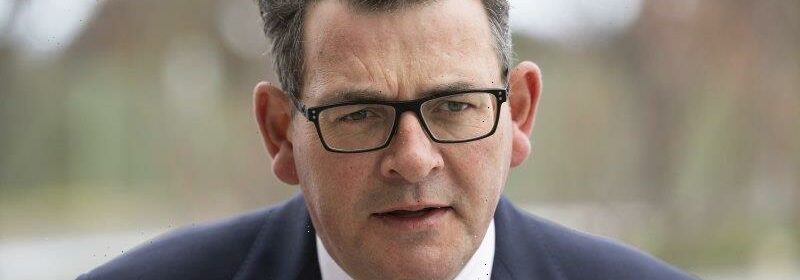End of pandemic laws helps put unhappy records behind us

For all the controversy the state’s pandemic declaration has attracted over the past 2½ years, this week’s decision to let the declaration lapse took place with surprisingly little fanfare.
It was March 16, 2020, when Victorian Premier Daniel Andrews first declared a state of emergency in response to the COVID-19 pandemic. The laws, which had never been used before, gave the chief health officer, Brett Sutton, broad powers to do what he believed was necessary to contain the spread of the virus and reduce the risk to the public.
It was also the first significant indication of the unprecedented role the state government would play in our lives during the pandemic. It gave Sutton the power to enforce the wearing of face masks, impose extended stay-at-home orders, shut down businesses and schools, and begin the detention of people in quarantine. Supporters credit the rules with saving lives, pointing to disastrous outcomes in other countries.
The rules became a lightning rod for public criticism, and their proportionality was continually questioned.
Anger in some quarters over the impingement of usually basic freedoms fuelled months of rancorous debate when the state-of-emergency powers were turned into new pandemic laws that eventually passed in December last year.
While further transparency and accountability measures were added, the most notable change was the shift in responsibility to declare pandemics and issue health orders from the chief health officer to the premier and health minister.
That shift in power was evident this week, when it was revealed by The Age’s chief reporter, Chip Le Grand, that Sutton, a prominent public face and key adviser to Victoria’s response to COVID-19, was not consulted on the decision to lift the pandemic declaration.
It possibly reflects the at times fractious personal relationship between Sutton and Premier Daniel Andrews, and more broadly the heated debate that often flared over the level of restrictions that should be enforced. Sutton was often seen as advocating for a stricter approach to managing the pandemic.
With an election just weeks away, though, the premier has every incentive to wind up the pandemic laws. The decision by the national cabinet two weeks ago to scrap the mandatory five-day isolation period for those who test positive with COVID-19 meant the arguments for keeping the powerful laws in place were no longer evident.
It is understandable why Victorians would want to put the pandemic behind them. The record-breaking lockdowns put an enormous financial and pyschological strain on many people.
But it will be some time before the vestiges of the pandemic are no longer apparent. There is good reason the state’s ailing health system is the issue front and centre in the lead-up to the election, and the state’s ballooning debt is a major concern for many voters.
There is also the human toll. More than 5700 Victorians have died with COVID-19, and many thousands are living with the long-term health impacts of the virus.
Our state’s toll tallied in lives lost, days spent in lockdown, economic damage and, arguably, social division is the nation’s heaviest.
It is not a record Victorians would have hoped for, but the end of the pandemic declaration is another step in putting it behind us.
Michael Bachelard sends an exclusive newsletter to subscribers each week. Sign up to receive his Note from the Editor.
Most Viewed in National
From our partners
Source: Read Full Article